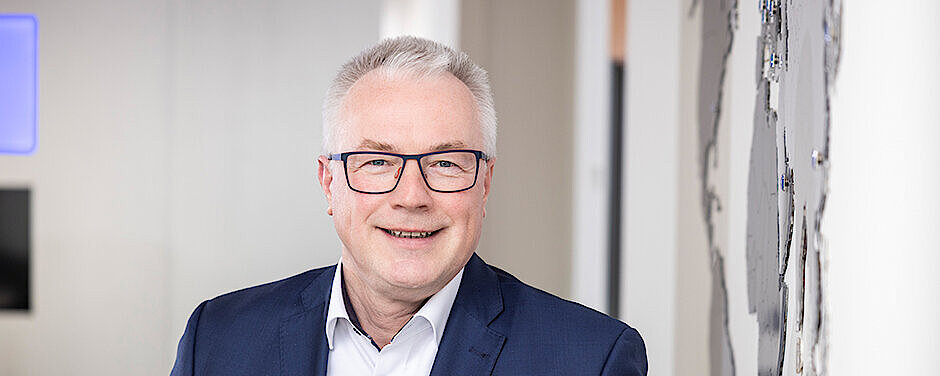Viewed from a completely personal perspective, what do you understand by sustainable practices?
Jürgen Spykman: There is only one planet Earth and our resources are finite. For me, sustainable practices mean seeking and breaking new ground to reduce the use of resources on a continuous basis. We should use renewable resources and protect or restore natural living environments wherever possible. At the same time, it is crucial to assume responsibility for ensuring equitable, socially harmonious coexistence.
With its four business areas, the Körber Group sees itself as a home for entrepreneurs. How does sustainability fit into this context?
Jürgen Spykman: “Be the first to do the right thing at the right time” is one of our guiding principles at Körber. This applies in all dimensions: for our innovations and when working together with customers, business partners, suppliers and all other stakeholders. In doing so, we look to the future, as it lies at the core of sustainability thinking. Körber’s sustainability pledge is rooted in our commitment to provide a better life for both today’s and tomorrow’s generations with our activities. Firmly embedded in our corporate strategy, this pledge is comprehensive in its nature and includes the three criteria of sustainability defined in the ESG set of considerations, which comprises environmental issues, social issues and corporate governance.
Pledges may sound all very good but the real significance lies in what actually happens …
Jürgen Spykman: Absolutely. Specific action is practically ingrained in our DNA: our group founder Kurt A. Körber understood environmental protection as an ‘ethical duty of modern industrial enterprises’. When he established his foundation in 1959, Kurt A. Körber provided the cornerstone for all-embracing social responsibility. He believed that if the company was in good shape, the public at large should benefit from its success. To ensure our sustainability pledge produces concrete results, we use our group-wide sustainability strategy to create a common understanding of sustainability and exploit synergies.
We have consolidated the strategic priorities for sustainability at a group- and business-area level in our ‘House of Sustainability’, where we bring together all sustainability activities and mould them into primary driving forces behind growth and innovation. The Körber Group’s vision of ‘market leadership through technology leadership’ also contributes to sustainability, as technology also helps companies to protect the environment. For us, technology leadership thus means making a significant contribution to a sustainable future.
Sustainable thinking shapes our business activities in the Körber Business Area Technologies just as it does throughout the entire Körber Group. We’re looking back on years of commitment to waste management, the environment, electromobility, energy consumption reduction and social responsibility. From initial ideas through to finished products, solutions and services, we strive to think and act sustainably. We constantly ask ourselves and our partners how we can save electricity and materials and reduce carbon emissions.



![[Translate to English:] Der EcoVadis-Platinum-Status belegt unser nachhaltiges Engagement.](/fileadmin/_processed_/d/b/csm_image-ecovadis-platinum_5a9f049ca2.png)